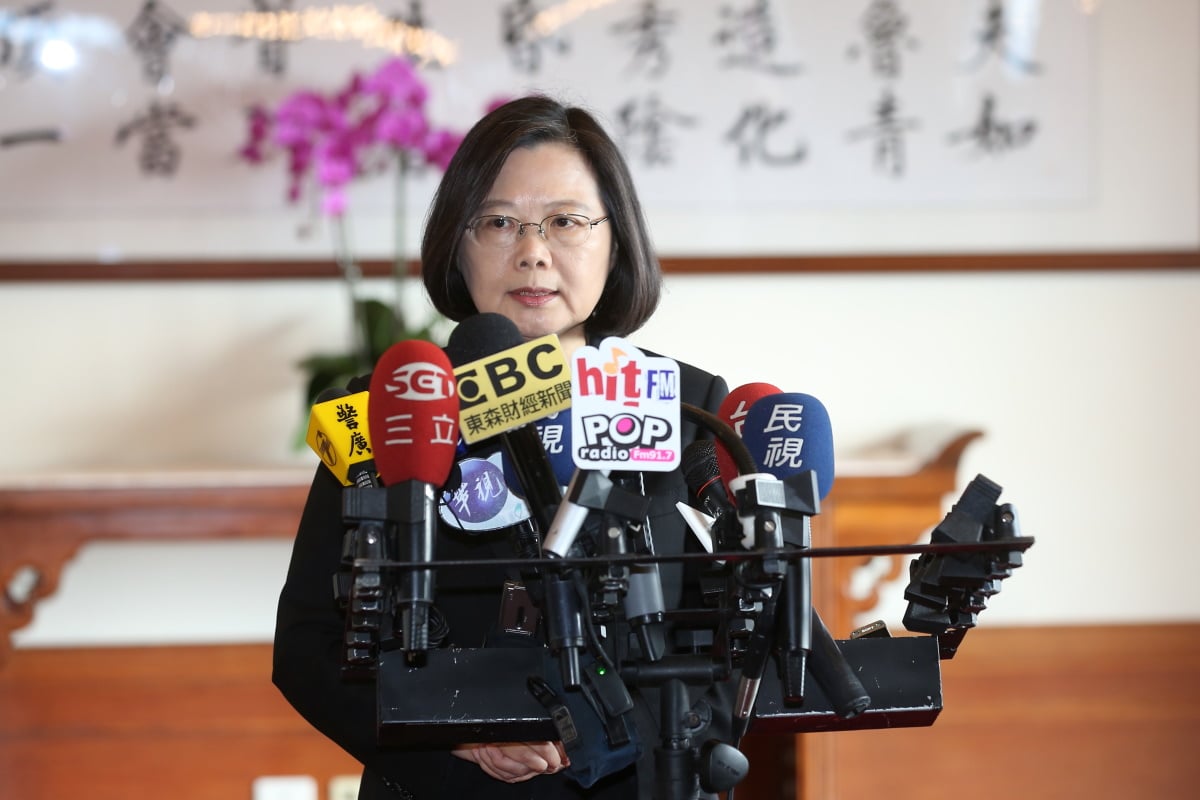There are three contenders for Taiwan’s presidency in 2020, President Tsai and her Democratic Progressive Party (DPP), the opposition in the form of Kuo-yu Han and the Chinese Nationalist Party or Kuomintang (KMT). And, there is outsider James Soong of minor party the People First Party (PFP).
Latest polling, including an Apple Daily weekly poll reported by Nikkei Asian Review on December 9, puts Tsai as much as 20-30% ahead of Han. Soong looks likely to receive less than 10% of Taiwanese votes.
The outcome of Taiwan’s election is not certain yet. Nikkei’s Chris Horton writes that “Taiwan’s young democracy has proved time and time again that predicting how voters will feel on election day is a difficult task.”
Tsai and the DPP lost popularity in 2018 but have since regained ground
In local polls in 2018, KMT “trounced” the DPP. Han won a clear victory to become mayor of Kaohsiung, usually a DPP stronghold. Tsai then resigned as chair of the DPP. Han had gained popularity with KMT supporters who have an affinity with Chinese nationalism rather than Taiwanese independence. Things changed for both candidates during the KMT and DPP primaries. Campaigning for the KMT party nomination by billionaire Terry Gou failed but “ate into Han’s popularity,” writes Horton. Tsai returned to campaigning with gusto and won the DPP party nomination as many in Taiwan watched events Hong Kong unfold.
A number of post-election outcomes are possible
It currently looks likely that Tsai will be re-elected for a second term. This could mean one of a number of possible outcomes for China-Taiwan relations.
As per an interview with The Diplomat, Bonnie Glaser, senior adviser for Asia and the director of the China Power Project at the Center for Strategic and International Studies in Washington, DC, says there are “several scenarios for the future of cross-strait relations.”
Firstly, Beijing could begin “quiet talks” with the Tsai administration to “find a path forward perhaps reaching an understanding for a new formulation of cross-strait relations other than the 1992 consensus,” said Glaser.
A second scenario could see the status quo persisting and official dialogue remaining “frozen.” A third, worst case scenario, could see China and President Xi pushing reunification with a stronger hand. The best outcome would be talks and a mutual path forward but whether that is likely is another matter. At least in the short-term, status quo could remain.
Tsai is a proponent for the sovereignty and independence of Taiwan. Han defends Taiwan as the Republic of China (ROC), which was established 1912 in mainland China. The ROC government fled the communist revolution and mainland China to Taiwan in 1949.
Taiwan Election 2020: one Country, two Systems as an Option?
Glaser says in the “unlikely but not impossible” event of Han becoming Taiwan’s president in 2020 “the official cross-strait dialogue” would “probably” resume. She doesn’t, however, think it would be a warm relationship. Like Tsai, Han objects to a “one country, two systems” arrangement like that which the Chinese government uses to rule China and Hong Kong. Han has also said Beijing-Taipei peace talks won’t happen unless Beijing “renounces the use of force,” as per Glaser.
Han has also said the differences between China and Taiwan should be left to the next generation whereas China’s President Jinping Xi’s wish when he took the presidency was not to pass on “problems in cross-strait relations.” Glaser thinks that “there would be a limit to any improvement in cross-strait relations even if Han is elected president.”
Tsai’s re-election could be better for the US
Though the KMT was seen as pro-US and anti-communist in postwar Taiwan some believe the KMT is showing a more pro-Beijing inclination leaving Tsai and the DPP as more pro-US. A re-election of Tsai implies a lower likelihood of reunification.
For the US, it’s more beneficial for Taiwan to retain its independence. Taiwan’s semiconductor industry, for example, is important to America’s technology and Taiwan’s current status quo gives the US greater links to East Asia. The US-China trade war has seen more foreign investment flow into Taiwan, reaching a figure of $10 billion in the first 10 months of 2019.
It’s important to note that, as per Nikkei, neither China or the US has publicly endorsed Tsai or Han. A successful election for Han is seen as more advantageous to Beijing’s goals but with Tsai polling 50.8% of the Apple Daily poll on December 9, and Han just 15.2% Tsai appears to have a substantial lead. That said, Han, in a Facebook post on November 29 told supporters “from now on when you get the pollsters’ calls please tell them you ‘only support Tsai Ing-wen’, we can keep the DPP happy until January 10.”










 Australia
Australia China
China India
India Indonesia
Indonesia Japan
Japan Malaysia
Malaysia Philippines
Philippines Singapore
Singapore South Korea
South Korea Taiwan
Taiwan Thailand
Thailand Vietnam
Vietnam Germany
Germany Hong Kong
Hong Kong USA
USA Switzerland
Switzerland Singapore
Singapore
 United Kingdom
United Kingdom








